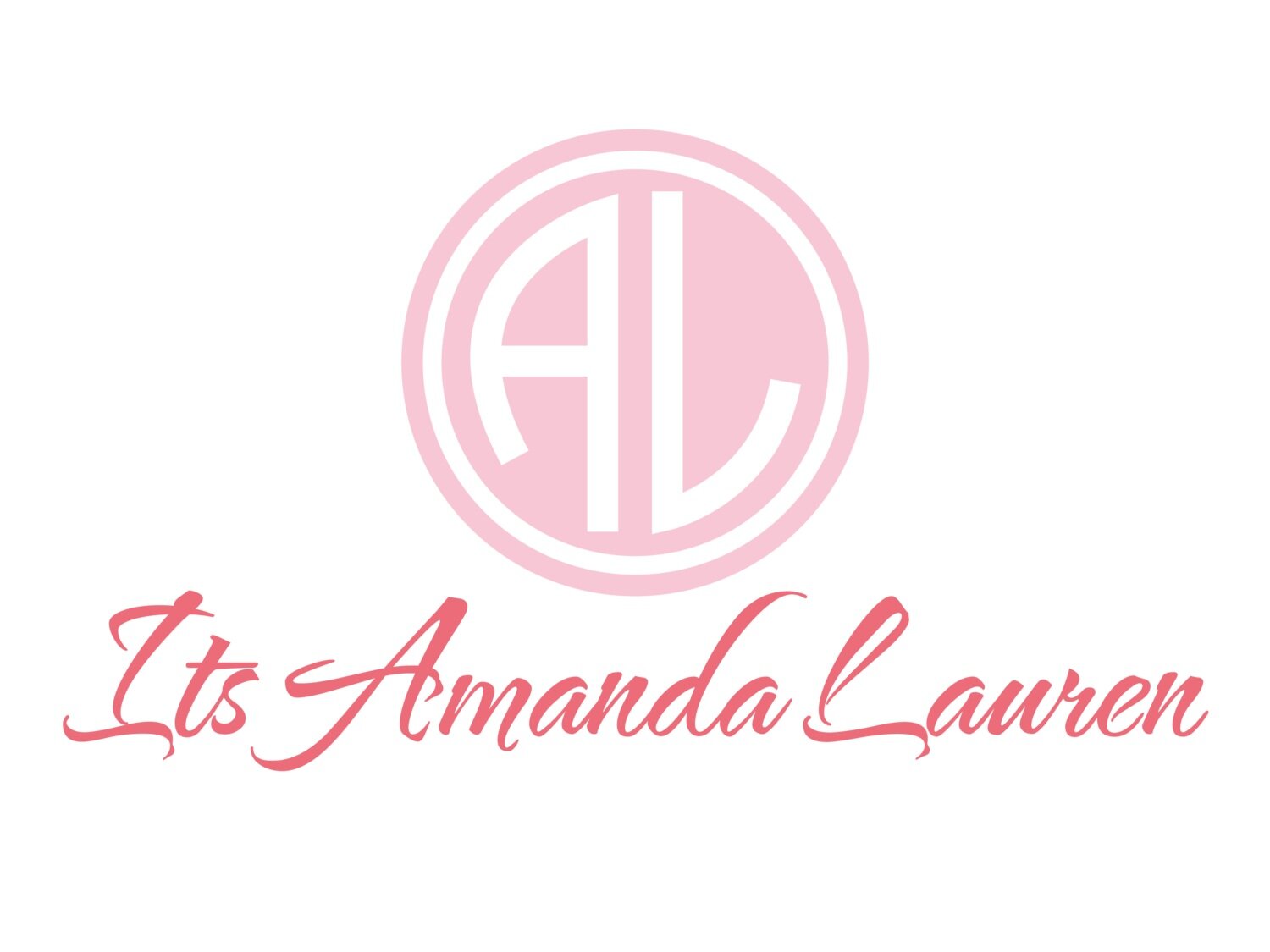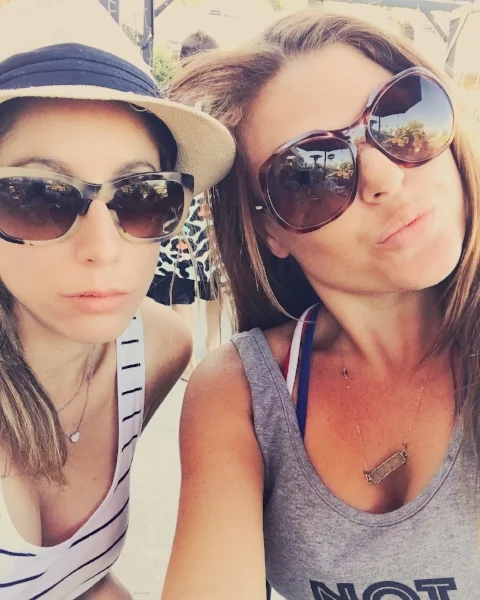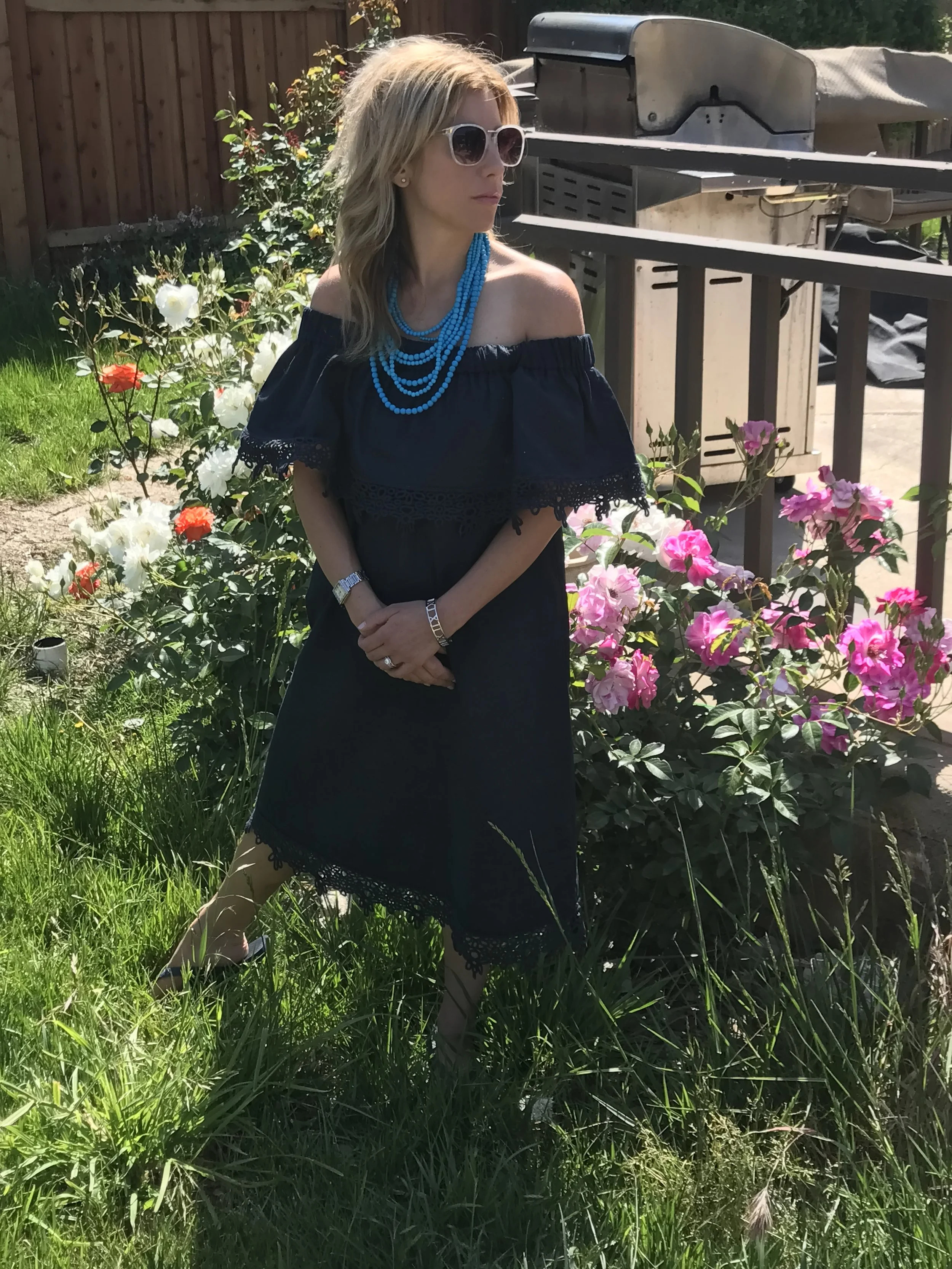Why I Am So Obsessed With Retin-A, As Explained By A Doctor
Extreme closeup of my face.
DISCLAIMER: None of this is medical advice. If you are going to my blog for medical advice, your skin is probably the least of your problems.
If you’ve been reading any of my recent posts about skincare or listened to the Beauty Deep Dive episode of my podcast with Ali Levine, Things We’re Too Lazy To Blog About, you know I’ve kind of been obsessed with Retin-A for a while now. No, this is not a sponsored post, but when I find a product I love that works I get really excited about it. There’s just one caveat about this product, it’s only available by prescription, which is actually a good thing because if you have insurance, depending on your plan, your co-pay can be less expensive than a trip to Starbucks. It’s just $10 on my plan. Let’s be honest. You probably pay a lot of money for insurance, so make it work for you.
If I’ve totally confused you or you are wondering why insurance would cover an anti-aging product, it’s because Retin-A was originally approved by the FDA as a treatment for acne in way back 1971. Fast forward to the 80’s, scientists discovered it reduced fine lines and wrinkles. So what does this mean for you? It means that if you are trying to prevent the progression of aging and still get an occasional breakout (that would be me! Ding! Ding! Ding! Ding! Ding!), this stuff is good as gold!
A few weeks ago I was at the office of Dr. Babak Dadvand, who is a double board certified plastic surgeon in Beverly Hills. I was interviewing him for an article I wrote for another website and we got into talking about Retin-A. He confirmed my belief about this product saying it was pretty much the best thing since sliced bread for your skin. Obviously, sliced bread is awful for your skin (but it sure sounds yummy right now), but you get my point.
He told me, “[It’s] the one thing I think everyone who can reverse the signs of aging should be on. Anyone who wants to look younger should be using it. It’s one of the best and cheapest things you can do for your skin."
Seriously, when are the words “best” and “cheap” ever in the same sentence?
So, how does this product work and why is it different from the thousands of other products out there? It’s simple, Retin-A is an exfoliator on steroids. Dr. Dadvand explained, “It turns over your cells and stimulates collagen and estain growth. It can also help with things such as hyperpigmentation or brown spots."
He told me, “Retin-A or retinol, in its milder form is one of the best things you can do for your skin. I’d even say you can go to your pharmacy and get an over the counter retinol cream that will cost you way less than expensive moisturizers and creams you can get at a department store. You can spend $100 at a department store or [just get] Retin-A. It will do more for your skin. People don’t realize how much bang for the buck Retin-A has.”
But, retinols can be a double-edged sword. Dr. Dadvand broke it down, “Retin-A can dry out your skin, but it dries out your skin because it’s working.”
When you first start using it, your skin might temporarily look worse (mine did), but Dr. Dadvand says you need to think long term here, “You have to gauge how your skin is reacting to it, [but] you will see the benefits in the next five to ten years of your life.”
So, take my advice, and be smart about it. If your skin is dry AF, skip a day or two. Dr. Dadvand says you don’t have to use Retin-A every day. How often you should use it depends on your baseline. He suggests a minimum of every few days. I try to use it every other day, but because my skin tends to peel, I try not to use it the night before a shoot or an event.
Dr. Dadvand told me, “You have to adjust based on your reaction. It’s not a cookie cutter prescription.” Also, keep in mind, because this is prescribed by a doctor, if something feels wrong or your face is uncomfortable, pick up the phone. But, stay the path and you will ultimately be really happy with your skin. Isn’t that what we all want?
You might also find you have to change your skincare routine. It is important to find products that help keep your skin moisturized and protected from the sun. Here are a few of my mainstays since making Retin-A my #1.





